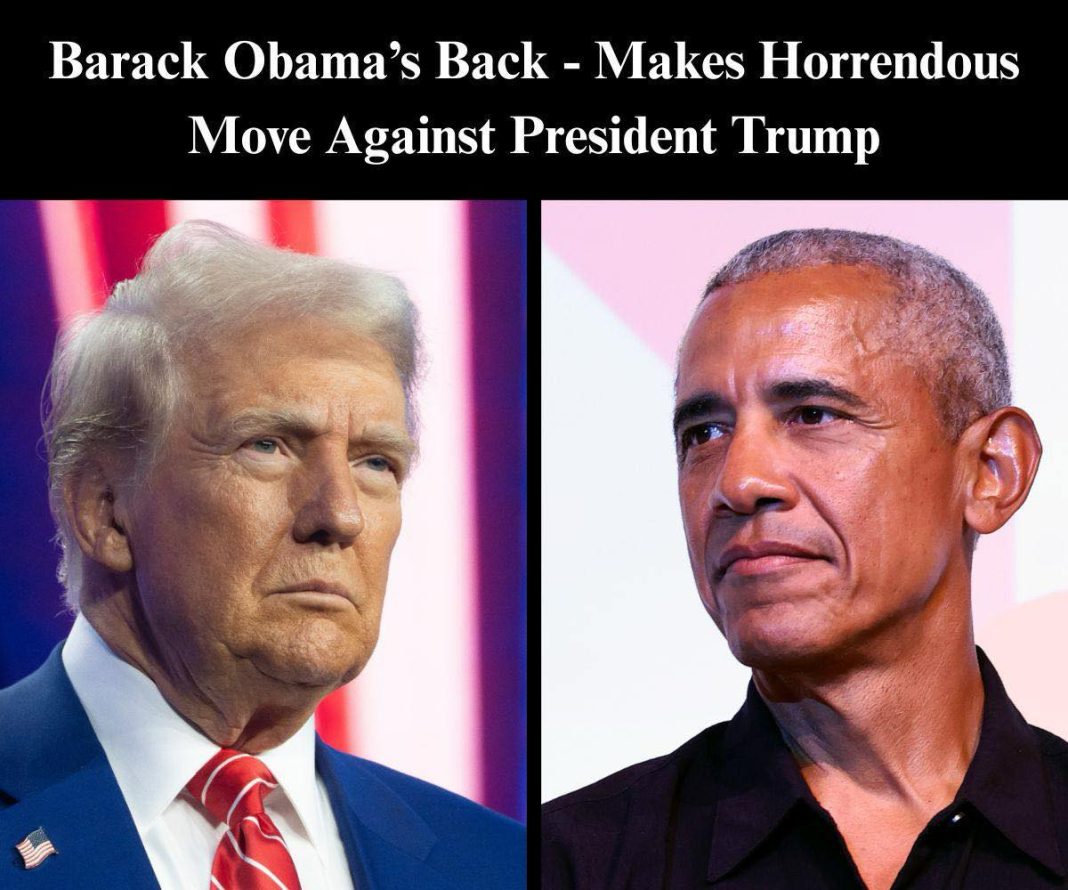Barack Obama’s Call for Regulation in the Digital Age
On June 17, 2025, former President Barack Obama delivered a thought-provoking address at The Connecticut Forum that ignited a national conversation about the role of government in regulating online content. His remarks highlighted the urgent need to address the pervasive spread of misinformation and the negative impact it has on public discourse. By asserting that the United States is grappling with a “crisis of truth,” Obama urged listeners to recognize the gravity of the situation posed by unchecked digital narratives. The implications of this crisis stretch far beyond the surface, impacting not just individual beliefs but also shaping policy, societal norms, and the very fabric of democracy itself.
The Crisis of Truth in the Digital Era
Obama likened the current state of public discourse to a surreal scenario where people might debate whether a table is, in fact, a lawnmower. This analogy underscores the unsettling reality that society is struggling to reach consensus on basic facts, thus creating a platform for dangerous ideologies to take root. He articulated a deep concern that those in positions of power are exploiting this confusion to peddle falsehoods, leading to a growing sense of public disengagement. As individuals become inundated with information from various platforms, the challenge of discerning fact from fiction becomes increasingly daunting. In many cases, people may unwittingly endorse false narratives, further perpetuating cycles of misinformation.
Generational Perspectives on Regulation and Censorship
While many people resonate with Obama’s alarm over the flood of misinformation, a significant number of older Americans, particularly those who lived through tumultuous periods such as McCarthyism and the civil rights movement, express unease with his call for more government intervention. These individuals view his comments as a potential encroachment on free speech and a troubling step toward censorship. The fears surrounding such governmental oversight stem from historical precedents where the line between necessary regulation and oppressive censorship became blurred. This generational divide illustrates the intricate balance society must navigate when considering the government’s role in regulating speech.
Warnings Against Political Manipulation
During his speech, Obama subtly critiqued certain political figures, most notably former President Donald Trump, by cautioning against leaders who only acknowledge the legitimacy of election results when they align with their interests. This sentiment reflects a broader concern about the erosion of democratic norms and the manipulation of public trust. The former president emphasized that the challenges facing democracy are not merely about misinformation but also about ensuring that leaders are held accountable for their actions and statements in a transparent manner. The rise of “alternative facts” and the normalization of blatant falsehoods can foster an environment where truth is subjective, further undermining the public’s ability to trust institutions.
The Need for New Regulations
Obama’s solution calls for a dual approach: enhancing education and implementing new regulations on the operation of social media platforms. He argued that while education plays a critical role in fostering critical thinking and media literacy, regulatory measures are equally necessary to curb the spread of harmful content. For instance, platforms could be held accountable for the algorithms they use, which often prioritize sensationalism over accuracy. However, he stressed that any regulations must be crafted carefully to respect the First Amendment rights of individuals. The challenge lies in finding effective ways to regulate without stifling innovation and open discourse, a feat that has proven difficult in various global contexts.
Concerns About Defining Misinformation
Critics of Obama’s stance raise significant concerns about the implications of allowing the government to define what constitutes “misinformation.” They question who would be the arbiter of truth and fear that such a framework could lead to the suppression of valid dissent and legitimate debate. This discourse brings to light a fundamental tension between the necessity of protecting public discourse from manipulative falsehoods and the imperative to safeguard free expression. The subjectivity inherent in determining misinformation creates a paradox where those in charge of enforcement might possess inherent biases, thus hindering the very essence of democratic dialogue.
The Role of Digital Literacy and Personal Responsibility
Amidst the fervor surrounding potential regulations, many experts advocate for a focus on digital literacy and encouraging personal responsibility among internet users. They argue that equipping individuals with the tools to critically assess information sources is a more effective strategy than governmental oversight. For example, educational institutions are increasingly incorporating media literacy programs into their curricula, fostering a generation that can better navigate complex information landscapes. By fostering a culture of responsible consumption of information, society can empower its members to navigate the complex digital landscape independently, thus reducing the reliance on potentially flawed regulatory frameworks.
Defending the Right to Diverse Opinions
As discussions surrounding online regulation continue to evolve, the discourse increasingly reflects a struggle to balance the preservation of free speech with the need to combat misinformation. The right to express diverse opinions, even when they are messy or controversial, remains a foundational element of democracy. Advocates for free expression assert that this right must be robustly defended, particularly in the tumultuous and chaotic environment fostered by the internet. Implementing regulations that inadvertently silence dissenting views could have long-term implications for the health of democracy. Ensuring a platform for diverse opinions is essential, as it encourages dialogue, debate, and ultimately, a richer understanding of societal issues.
The Future of Online Content Regulation
As both political parties grapple with the implications of regulating online content, the battle for digital freedom becomes more pronounced. Obama’s remarks, while provoking important conversations about misinformation, also serve as a call to reflect on the delicate interplay between governance and individual freedoms. As society moves forward, it will be essential to navigate this complex terrain carefully, ensuring that efforts to combat misinformation do not compromise the foundational principles of democracy. The future of online content regulation must strike a balance that respects individual rights while also holding those who spread harmful misinformation accountable, ensuring a healthier and more informed public discourse.














